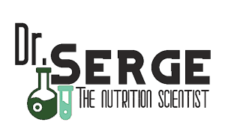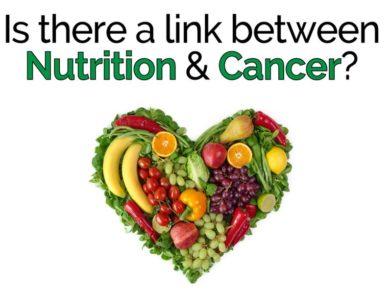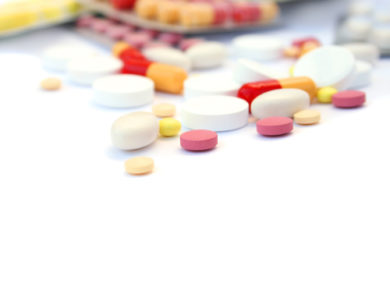Last week, I wrote about how to boost your immune system while the earth is fighting this unprecedented epidemic.
You can read more here:
And then, I demonstrated, using two studies that the flu shot increases the risk of getting the coronavirus:
This is not surprising knowing that the flu shot is associated with a reduced function of the immune system, as I explained before:
And it is surprising to see that they are pushing the vaccine narrative extremely heavenly right now. They are saying that the only thing that can save us is to get this vaccine out asap so we can eradicate this pandemic.
This is so ludicrous!
We all know that the only out of this is to address the underlying cause of why people get infections.
As I mentioned earlier, vitamin C is a great asset to fight this virus.
There are more reports showing that other natural options could help as well.
For example, coconut is known to have antiviral properties:
Dr. Dayrit explains that there are three ways that monolaurin, a fat present in coconut, can help to get rid of this virus:
“Three mechanisms have been proposed to explain the antiviral activity of lauric acid and monolaurin: first, they cause disintegration of the virus envelope; second, they can inhibit late maturation stage in the virus replicative cycle; and third, they can prevent the binding of viral proteins to the host cell membrane.
- Disintegration of the virus membrane. The antiviral activities of lauric acid and monolaurin were first noted by Sands and co-workers (1979) and later by Hierholzer & Kabara (1982). In particular, Hierholzer & Kabara showed that monolaurin was able to reduce infectivity of 14 human RNA and DNA enveloped viruses in cell culture by >99.9%, and that monolaurin acted by disintegrating the virus envelope. Thormar and co-workers (1987) confirmed the ability of lauric acid and monolaurin to inactivate viruses by disintegration of the cell membrane. Sodium lauryl sulfate has been shown to be able to solubilize and denature the viral envelope (Piret 2000, 2002).
- Inhibits virus maturation. The Junin virus (JUNV) is the causative agent of Argentine hemorrhagic fever. In a comparison among the saturated fatty acids from C10 to C18 against JUNV infection, Bartolotta and co-workers (2001) showed that lauric acid was the most active inhibitor. From mechanistic studies, it was concluded that lauric acid inhibited a late maturation stage in the replicative cycle of JUNV. From transmission electron microscope images, JUNV is an enveloped virus featuring glycoproteins that are embedded in the lipid bilayer forming viral spikes (Grant et al., 2012); this is similar to nCoV-2019.
- Prevents binding of viral proteins to the host cell membrane. Hornung and co-workers (1994) showed that in the presence of lauric acid, the production of infectious vesicular stomatitis virus was inhibited in a dose-dependent and reversible manner: after removal of lauric acid, the antiviral effect disappeared. They observed that lauric acid did not influence viral membrane (M) protein synthesis, but prevented the binding of viral M proteins to the host cell membrane.”
He concludes:
“Several in vitro, animal, and human studies support the potential of coconut oil, lauric acid and its derivatives as effective and safe agents against a virus like nCoV-2019.”
Then, there is this article:
“The effects of Nigella sativa (Ns), Anthemis hyalina (Ah) and Citrus sinensis (Cs) extracts on the replication of coronavirus and the expression of TRP genes family”
From the article:
“Herbal remedies have been used as folk medicine to treat many diseases. Some herb extracts were shown to inhibit virus replication. One of these herbs is a chamomile plant called Anthemis hyalina (Ah). A. hyalina belongs to plant family of Asreraceae genus; Anthemis, species; A. hyalina DC. Chamomile is regularly used in tea making and to relieve stomachache and digestive system problems. Chamomile was shown to have anti-inflammatory effects and to decrease wound healing time. Antimicrobial activity of different species in the genus of Anthemis have been documented. Twenty-four different components were characterized in Ah extract.
Citrus sinensis (Cs) belongs to the plant family of Rutaceae, genus citrus, species Citrus sinensis (L.) Osbeck. Another herb used for various treatments is Cs, known as sweet orange. In Turkey, people consume Cs by making jam and eating especially during flu seasons in order to get more vitamin C, which is believed to help recover from flu. Cs peels extract contains a high amount of flavonoids, limonene, and linalool. Cs peel extract has antioxidant and antimicrobial activities. Limonene is an insecticidal compound with low oral or contact toxicity to mammals. Flavonoids have also been shown to have antiviral activity.
Nigella Sativa belongs to the plant family of Ranunculaceae, genus; Nigella, species; Nigella sativa L. Ns seeds that are known as black cumin is another plant that is used for various treatments. In Turkey, Ns seeds are commonly used on breads and cookies. In addition, some people mix Ns seeds and honey to use for upper respiratory tract infections and some stomach diseases. Ns extract has antiviral, antitumor, and antimicrobial activities.”
In other words, we can add chamomile, sweet orange, and black cumin to our arsenal to fight coronavirus.
And this article demonstrates that beets, green tea, celery, apples, potassium, garlic, and sun exposure are all beneficial to help your immune system to work optimally.
At the end of the day, we already have natural options to strengthen your immune system against this virus.
God bless y’all 😊
Dr. Serge





